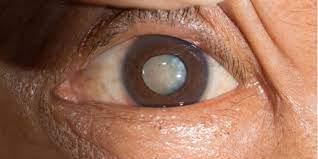What to Expect with Cataract Surgery
A cataract is an opacification, or clouding, of the crystalline lens inside the eye. Cataracts occur naturally with age but may occur sooner in people with certain health conditions such as diabetes. If your loved one’s optometrist has recommended cataract surgery, it is likely because the lens is opacified to a point where it is now affecting the vision in one or both eyes. Here is what you need to know about the cataract surgery process:
The Consultation
Your loved one will see an optometrist or ophthalmologist, or both, to review the process and discuss different intraocular lens options. After a cataract is removed, an intraocular lens will be placed to help improve vision. Currently, several different types of intraocular lenses are designed to help improve vision. Each lens has its own benefits and drawbacks and some are more expensive than others; usually, high-tech lenses are more expensive than standard intra-ocular lenses.
Preparing for Surgery
The ophthalmologist will likely want to ensure that your loved one is healthy enough to undergo cataract surgery and will require a physical evaluation that will involve bloodwork and an EKG before the surgery date. Your loved one will also need to begin certain medications prior to the surgery.
What Happens After Surgery?
In most cases, the surgery is an outpatient procedure and your loved one will be able to go home the same day. However, your ophthalmologist, or a co-managing optometrist, will see the patient the day after surgery and then several times afterward to make sure that they are recovering well. The number and frequency of follow-up visits will depend on your loved one’s ocular and physical health; patients who are at risk for post-op complications are often followed more closely.
Vision after the surgery can vary and one eye will not necessarily react the same way as another. It is normal to have some blurry vision and inflammation within the eye after surgery, and it is likewise important to ensure that your loved one uses their post-operative drops as directed.
Are There Risks?
Like any surgery, cataract surgery has risks. Your ophthalmologist, optometrist, and primary care doctor will work to minimize risk. If your loved one develops a complication, they may be referred back to the surgeon or a retinal specialist for additional treatment.
As a family member and caregiver, you are likely also your loved one’s best advocate in the healthcare space. Take the time to review the paperwork and ask questions if you have them. If you are located in New York City and are looking for someone who can help care for your loved one after cataract surgery call Allure Home Care Today.
- Log in to post comments

